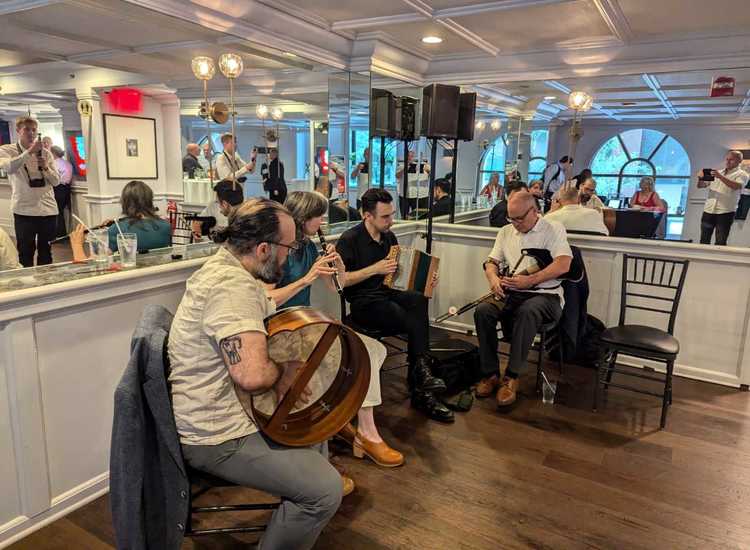The cover of this St. Patrick's Day issue is an evocative reminder of times when the Irish set out for America with no guarantee of actually making it across the ocean alive, or if they did, any guarantee that life in America would bring freedom from the kind of poverty and oppression that was their lot back in Ireland.
But one guarantee that those immigrants of past times did enjoy, at least the great majority of them, and this was that America's door would be open and that they would be afforded the chance for a new life, one in which their talents and energies could be unleashed with at least the potential for the kind of material advancement absent from their Irish lives.
This time of year, most especially on St. Patrick's Day itself, many people around the United States will take to the streets to march in parades and watch from the sidelines. Many will be Irish American and some Irish-born, the immigrants of a more recent time.
In both absolute and proportional terms, however, the number of the former will far exceed the latter.
There was a time when the comparative totals would have been far closer. But since the mid-1960s, and most especially since passage of the 1965 immigration reform act, the flow of new Irish arrivals has been in steady decline.
There was a brief resurgence in the 1980s and early 90s, but the Irish newcomers in those years differed from their forebears in that they were mostly undocumented.
The story of their battle for legality is a familiar one by now, as is the story of the battle on behalf of those who failed to gain a legal toehold by means of Donnelly, Berman, Morrison and Schumer visas.
Above and beyond sustained concern for the undocumented Irish, there has been increasing discussion in recent years over what is referred to as "future flow."
During the boom years of the Celtic Tiger, when jobs on the island of Ireland were abundant, there was a sense that large-scale immigration to America and other familiar destinations was a thing of the past.
Well, it wasn't, and once again young Irish men and women are facing choices they, and their families, had hoped would never have to be made. This has been amply illustrated by recent "job fairs" in Ireland, the jobs being off the island, not on it.
The Echo recently reported on one such fair in Dublin. It was notable that the main destination of choice was not the United States, but Canada.
Beyond the longer term debate over emigration from Ireland, there is the shorter term matter of where people can go, and what they can do once they do go. As is, other nations, especially Canada, would appear to be generally more welcoming to the Irish right now than the United States. The U.S., as we are aware, is having difficulties with regard to immigration in general, with pressure for easier access coming from countries all around the globe.
The Irish are a drop in the bucket in terms of the overall annual immigrant inflow, but Irish America has the ability to apply pressure well out of proportion to this drop.
The late Senator Edward Kennedy was a driving force behind the '65 act. In and of itself, the act was a valiant effort to make inward flow more equitable. The national quota system that existed prior to the act heavily favored European nations, Ireland included. It was also flagrantly discriminatory against some nationalities, notably Chinese.
But with regard to Ireland in particular, what followed the act turned out to be highly unfavorable, and indeed discriminatory. Senator Kennedy would acknowledge this himself in later years.
"What we were trying to do was eliminate the discrimination that existed in the law, but the way that that legislation was developed worked in a very dramatic and significant way against the Irish," he said.
The law working against a particular nationality is not the intention of the law. With the 1965 act in mind, advocates for greater Irish access to the United States have been lately advocating a range of measures that have comprehensive immigration reform at one end of the spectrum, and, most recently, an Irish E-3 visa program that would go some way in watering down the unforeseen and undesired effects of the 1965 legislation.
St. Patrick's Day is an appropriate time to take stock of the Irish contribution to our great nation, and to imagine what will be the nature and extent of that contribution in years to come.
If there is a sense that both will be diminished because of present restrictions, then it is time to reinvigorate the campaign to ease those restrictions.









